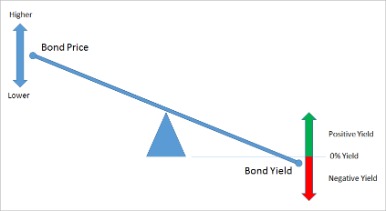The Impact of Blockchain Technology in Auditing Deloitte US

In these circumstances, the role of a structured literature review (SLR) of emerging research of blockchain in accounting should be a helpful tool (Cai et al., 2019; Moro et al., 2015). Accounting With BlockchainUsing blockchain technology allows users to integrate accounting into business activities rather than separate accounting from business activities. This is achieved via a triple entry accounting system that, essentially, maintains three ledgers, one each by the seller, the buyer and a public set of (cryptographically authorized) records.

New Technology
The uncertainty linked to valuing cryptoassets is affecting the development of proper regulations, as this issue affects the fundamental qualitative aspects of financial accounting, such as relevance and faithful representation. standardized earnings surprise Moreover, as highlighted in the Conceptual Framework for Financial Reporting, the principles of prudence, neutrality and conservatism continue to pose challenges for properly presenting cryptoassets in financial statements (FRC, 2018; The Interpretations Committee, 2019). Essential roles for auditors in the future will be assuring the reliability, credibility and authorisation process of blockchain transactions. Even though, for most industries, blockchain is still a new and not yet well-established technology, the World Economic Forum estimates that, by 2025, at least 10% of global gross domestic product (GDP) will rely on blockchains. And, by 2030, blockchains will have created $3.1tn in business value (Panetta, 2018).
The divergence of crypto classifications means that worldwide regulation and availability of information on cryptoassets will be the most important factors for their spread. As a result, we see the need for a proactive regulatory framework rather than merely reacting to questions regarding the regulation and accountability of cryptoassets. Blockchain may also lead to more disclosures of non-financial information, such as that related to sustainability and corporate social responsibility. They may what does organization name mean on a job application wish to quantify and make visible “feel-good” information as a counterpart to the financial (Smith, 2017).
The Impact of Blockchain Technology on Accounting and Auditing
Reconciliation of accounting data will not be fully automated through blockchain technology as auditors’ professional expertise and experience is required to assess the accuracy of complex accounting transactions. However, the ability to trust that both parties are recording the same base transaction information and the real-time availability of this accounting data offers immense benefits for the efficiency with which accounting data can be reconciled and analyzed. Due to distributed ledger technology, blockchain technology eliminates the need for entering accounting information into multiple databases and potentially removes the need for auditors to reconcile disparate ledgers. This could save substantial amounts of time and the risk of human error may be considerably reduced.
Blockchain Technology in Financial Accounting: Enhancing Transparency, Security, and ESG Reporting
On an aggregate basis, mining would represent the seventh largest country by electricity consumption. Blocks are linked creating the so-called blockchain by including in each block header the hash of the previous block header. Gabriella Kusz was a principal, Strategic Initiatives, at IFAC where she supported accountancy’s leadership and innovation in the digital era. In a Python environment (), the articles are first converted from PDF documents into text files. The text is then converted into lower case, and all characters other than letters are removed.
Author Services
- Combined with manual analysis, these data will help to chart new paths forward for researchers.
- They may wish to quantify and make visible “feel-good” information as a counterpart to the financial (Smith, 2017).
- Blockchains do not provide a guarantee for transactions taking place in the real world.
- The results showed that the four topics with the highest marginal distribution accounted for more than half of the overall content of the sample.
It will be important to monitor the progress in the take-up of blockchain in the future (Bonsón et al., 2019; Gietzmann and Grossetti, 2019; Bonsón and Bednárová, 2019). More papers applying machine learning techniques will help to gather information from reports, and web crawlers will be able to discover new aspects of how blockchain technologies have been implemented in practice. Combined with manual analysis, these data will help to chart new paths forward for researchers. It’s clear that technology is changing the way organizations do business across all functions and industries. But there are particular pairings of tool and team that carry game-changing potential. Prior research points to a growing trend in the topic of new skills for teams when implementing blockchain and using this technology in day-to-day work (Changati and Kansal, 2019).
One of the challenges for implementing blockchain is context (Stratopoulos and Calderon, 2018). It is unlikely that small firms would want to make their transactions publicly available or that they would benefit from blockchain accounting as much as big companies. Distributed ledgers may not be attractive or even needed by every company, so there is a real need to ascertain exactly what the up and downsides of implementing blockchain are. As O’Leary (2019) observes, the opportunities for using blockchain may be limited by the desire and ability of all agents in the ecosystem to implement it. Because blockchain eliminates the need to enter and reconcile information in multiple databases, efficiency gains are a key strength.
Some authors call for the appearance of a new brand of auditor that can offer attestation services for independent evaluations of blockchain controls (Canelón et al., 2019; Sheldon, 2019). Two of the most widely discussed topics–“the changing role of accountants” and “the new challenges for auditors”–only seem to be getting more popular. Although “new skills for teams” began to attract attention in 2019, papers on this topic still only account for a small portion of the sample. Interesting, even over such a short period, interest in some topics is already waning, e.g. “FinTech what is advanced research projects agency arpa in banking”, “cryptocurrencies and cryptoassets”, and “blockchain and taxation”. With this in mind, and given the overwhelming interest in just a handful of topics, we focused the rest of our analysis on the top four topics.

